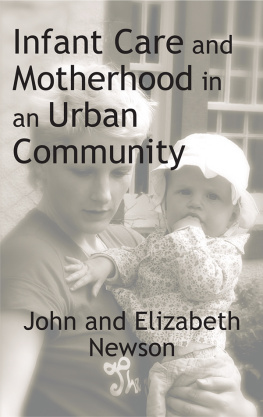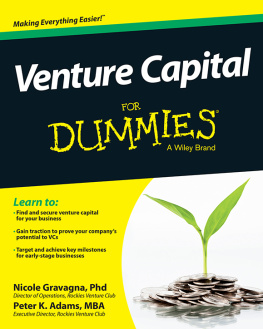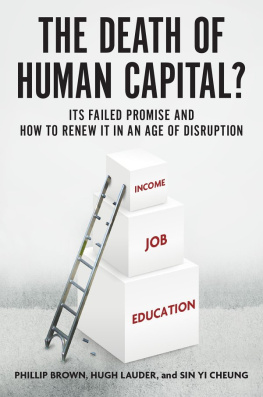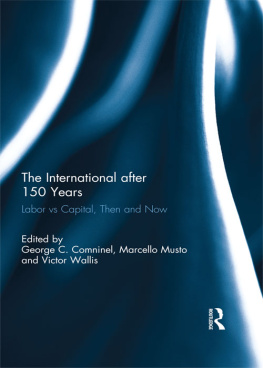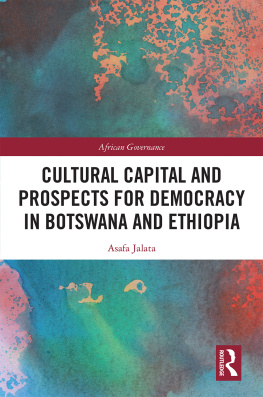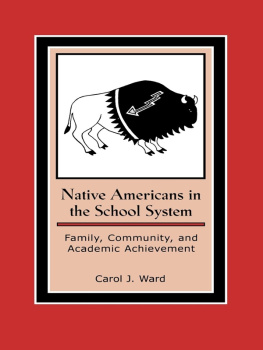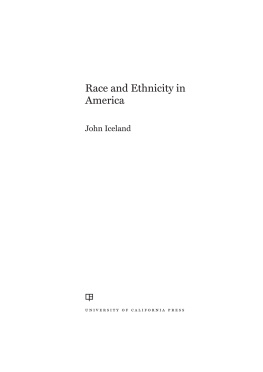First published 1996 by Transaction Publishers
Published 2017 by Routledge
2 Park Square, Milton Park, Abingdon, Oxon 0X14 4RN
711 Third Avenue, New York, NY 10017, USA
Routledge is an imprint of the Taylor & Francis Group, an informa business
Copyright 1996 by Taylor & Francis.
All rights reserved. No part of this book may be reprinted or reproduced orutilised in any form or by any electronic, mechanical, or other means, now knownor hereafter invented, including photocopying and recording, or in anyinformation storage or retrieval system, without permission in writing from thepublishers.
Notice:
Product or corporate names may be trademarks or registered trademarks, and areused only for identification and explanation without intent to infringe.
Library of Congress Cataloging-in-Publication Data
Farkas, George, 1946-
Human capital or cultural capital? : ethnicity and poverty groups in an urban school district / George Farkas.
p. cm. (Social institutions and social change)
Includes bibliographical references (p. ) and index.
ISBN 0-202-30523-6 (alk. paper) ISBN 0-202-30524-4 (pbk. : alk. paper)
1. MinoritiesEducationSocial aspectsUnited States. 2. PoorEducationSocial aspectsUnited States. 3. Academic achievementUnited States. 4. Human capitalUnited States. 5. Educational anthropologyUnited States. 6. MinoritiesEducationTexasDallasReadingCase Studies. 7. Reading comprehensionTexasDallasCase studies. 8. ReadingRemedial teachingTexasDallasCase studies. 9. Remedial teachingTexasDallasCase studies. I. Title. II. Series.
LC3731.E37 1996
370.19340973dc20 96-6394
CIP
ISBN 13: 978-0-202-30524-0 (pbk)
SOCIAL INSTITUTIONS AND SOCIAL CHANGE
An Aldine de Gruyter Series of Texts and Monographs
EDITED BY
Wright James D.
Larry Barnett, Legal Construct, Social Concept: A Macrosociological Perspective on Law
Vern L. Bengtson and W. Andrew Achenbaum, The Changing Contract Across Generations
Thomas G. Blomberg and Stanley Cohen (eds.), Punishment and Social Control: Essays in Honor of Sheldon L. Messinger
Remi Clignet, Death, Deeds, and Descendants: Inheritance in Modem America
Mary Ellen Colten and Susan Gore (eds.), Adolescent Stress: Causes and Consequences
Rand D. Conger and Glen H. Elder, Jr., Families in Troubled Times: Adapting to Change in Rural America
Joel A. Devine and James D. Wright, The Greatest of Evils: Urban Poverty and the American Underclass
G. William Domhoff, The Power Elite and the State: How Policy is Made in America
G. William Domhoff, State Autonomy or Class Dominance? Case Studies on Policy Making in America
Paula S. England, Comparable Worth: Theories and Evidence
Paula S. England, Theory on Gender/Feminism on Theory
George Farkas, Human Capital or Cultural Capital? Ethnicity and Poverty Groups inan Urban School District
Ronald F. Inglehart, Neil Nevitte, Miguel Basaez, North American Trajectory: Growing Cultural, Economics, and Political Ties between the United States, Canada, and Mexico
Gary Kleck, Point Blank: Guns and Violence in America
Dean Knudsen and JoAnn L. Miller (eds.), Abused and Battered: Social and Legal Responses to Family Violence
James R. Kluegel, David S. Mason, and Bemd Wegener (eds.), Social Justice and Political Change: Public Opinion in Capitalist and Post-Communist States
Theodore R. Marmor, The Politics of Medicare(Second Edition)
Thomas S. Moore, The Disposable Work Force: Worker Displacement and Employment Instability in America
Clark McPhail, The Myth of the Madding Crowd
Steven L. Nock, The Costs of Privacy: Surveillance and Reputation in America Talcott Parsons on National Socialism(Edited and with an Introduction by Uta Gerhardt)
James T. Richardson, Joel Best, and David G. Bromley (eds.), The Satanism ScareAlice S. Rossi and Peter H. Rossi, Of Human Bonding: Parent-Child Relations Across the Life Course
Joseph F. Sheley and James D. Wright: In the Line of Fire: Youth, Guns, and Violence in Urban America
David G. Smith, Paying for Medicare: The Politics of Reform
James D. Wright, Address Unknown: The Homeless in America
James D. Wright and Peter H. Rossi, Armed and Considered Dangerous: A Survey of Felons and Their Firearms, (Expanded Edition)
James D. Wright, Peter H. Rossi, and Kathleen Daly, Under the Gun: Weapons, Crime, and Violence in America
Mary Zey, Banking on Fraud: Drexel, Junk Bonds, and Buyouts
This study began as a joint project with Daniel Sheehan and Robert Grobe, who served, at the time, as principal evaluator and executive evaluator, respectively, in the Department of Planning, Evaluation, and Testing of the Dallas Independent School District. Even though their professional responsibilities kept them too busy to join me in authoring this work, it is clearly the case that the data would not have been collected, and the study would not have occurred, without their collaboration. I am enormously grateful for all the work they did, and for their continued friendship. I am also grateful to William Webster, the Director of the Division of Program Evaluation Services, for creating and maintaining a professional environment with high intellectual standards, where work of this sort is encouraged.
Yuan Shuan, at the time a doctoral student in political economy at the University of Texas at Dallas, ran many of the regressions reported here. He did this with enormous skill and care, for which I am grateful. Kurt Beron coauthored . Johnnye Heaton input the final tables with skill and dispatch. If Richard Koffler hadnt kept after me, I might never have completed this volume. John Kain provided moral support and valuable advice on this project over a period of many years. He also read the manuscript and offered important suggestions on how to restructure it. In addition, good advice was provided by Ross Koppel, the (previously) anonymous Aldine reviewer. The manuscript was also read by Paula England, Paul Jargowsky, and Ernie Stromsdorfer, who provided useful comments and advice.


